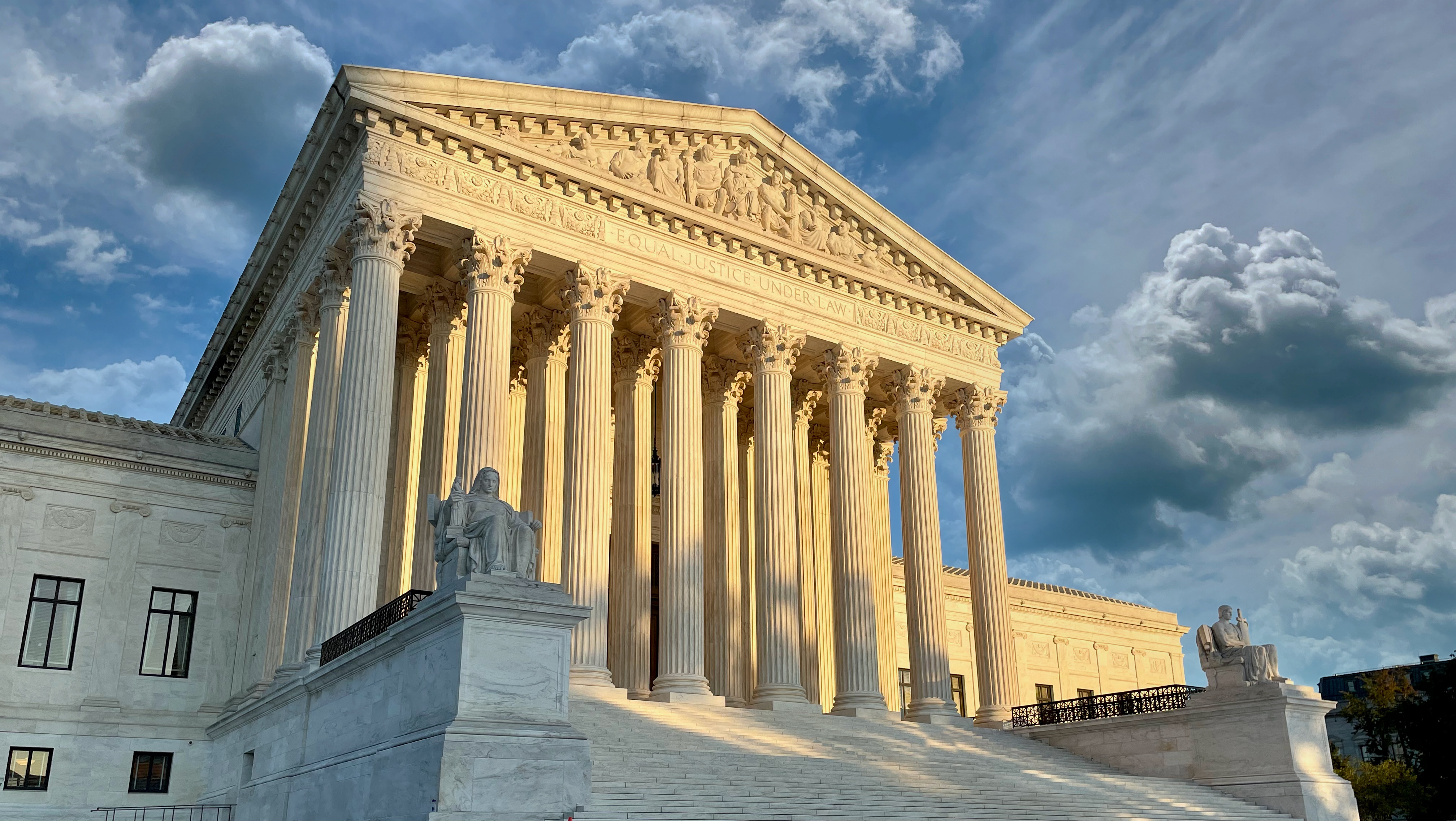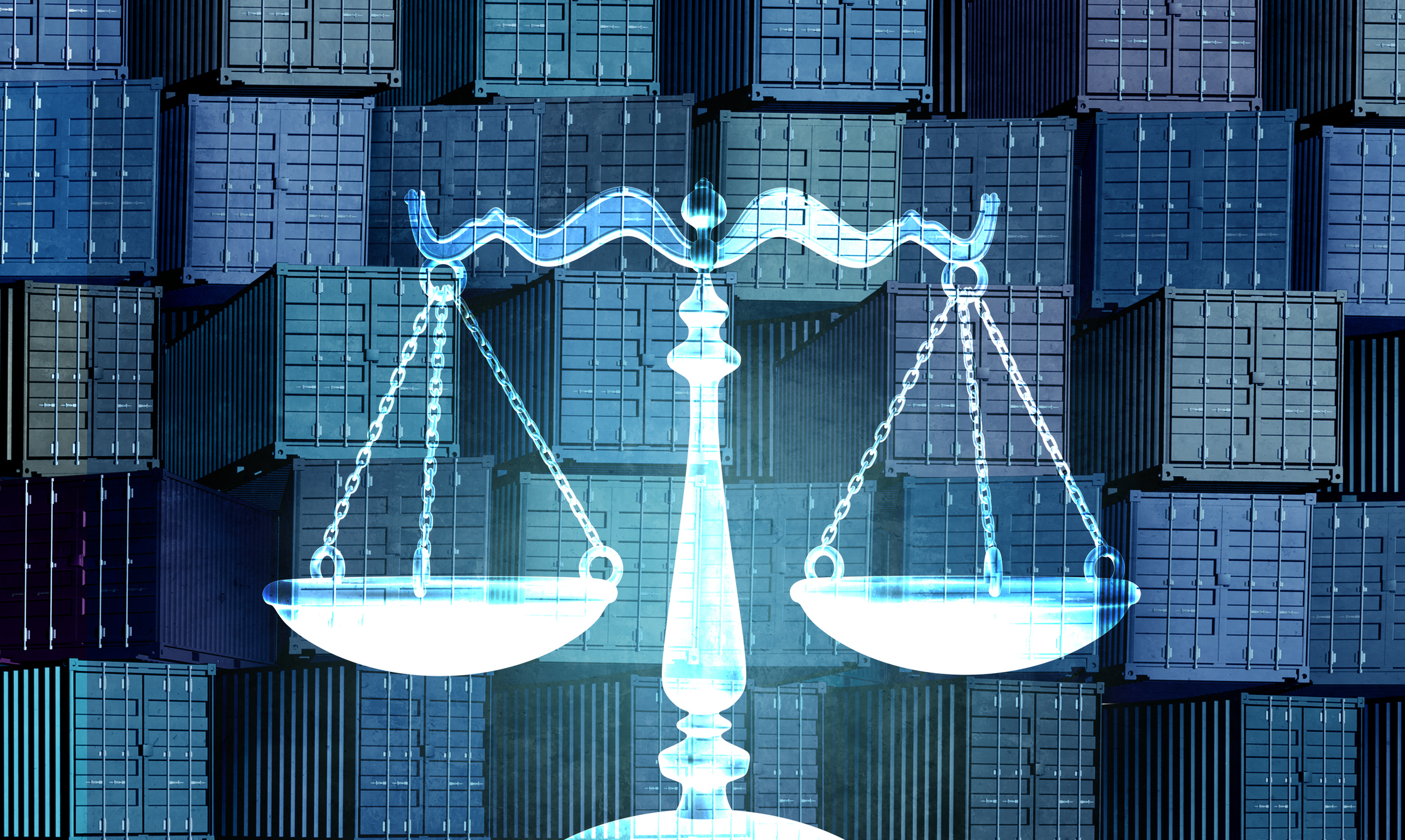Social Media, Guns, Taxes, Abortion: New Supreme Court Cases You Need to Know
The U.S. Supreme Court will hear several cases this fall that could significantly impact your rights and even taxes. Here are a few of them to watch.


Profit and prosper with the best of Kiplinger's advice on investing, taxes, retirement, personal finance and much more. Delivered daily. Enter your email in the box and click Sign Me Up.
You are now subscribed
Your newsletter sign-up was successful
Want to add more newsletters?

Delivered daily
Kiplinger Today
Profit and prosper with the best of Kiplinger's advice on investing, taxes, retirement, personal finance and much more delivered daily. Smart money moves start here.

Sent five days a week
Kiplinger A Step Ahead
Get practical help to make better financial decisions in your everyday life, from spending to savings on top deals.

Delivered daily
Kiplinger Closing Bell
Get today's biggest financial and investing headlines delivered to your inbox every day the U.S. stock market is open.

Sent twice a week
Kiplinger Adviser Intel
Financial pros across the country share best practices and fresh tactics to preserve and grow your wealth.

Delivered weekly
Kiplinger Tax Tips
Trim your federal and state tax bills with practical tax-planning and tax-cutting strategies.

Sent twice a week
Kiplinger Retirement Tips
Your twice-a-week guide to planning and enjoying a financially secure and richly rewarding retirement

Sent bimonthly.
Kiplinger Adviser Angle
Insights for advisers, wealth managers and other financial professionals.

Sent twice a week
Kiplinger Investing Weekly
Your twice-a-week roundup of promising stocks, funds, companies and industries you should consider, ones you should avoid, and why.

Sent weekly for six weeks
Kiplinger Invest for Retirement
Your step-by-step six-part series on how to invest for retirement, from devising a successful strategy to exactly which investments to choose.
Recently, the U.S. Supreme Court has been in the spotlight. The overturning of Roe v. Wade last year has raised awareness of changes in the makeup of the court.
Additionally, controversies surrounding court ethics and justices failing to disclose luxury gifts have been in the news. (Some recent surveys suggest that more than half of Americans disapprove of how the Supreme Court handles its job.)
U.S. Supreme Court justices consider several landmark cases
Meanwhile, the Court's fall term has started with several potential landmark cases on the docket involving social media, guns, taxes, and possibly abortion. The outcomes of these cases could significantly impact your rights — and wealth, in the case of taxes.
From just $107.88 $24.99 for Kiplinger Personal Finance
Become a smarter, better informed investor. Subscribe from just $107.88 $24.99, plus get up to 4 Special Issues

Sign up for Kiplinger’s Free Newsletters
Profit and prosper with the best of expert advice on investing, taxes, retirement, personal finance and more - straight to your e-mail.
Profit and prosper with the best of expert advice - straight to your e-mail.
Here's what you need to know.
Social Media and Free Speech
What are the social media-related Supreme Court cases?
The Supreme Court is reviewing cases related to social media, including two involving state laws in Texas and Florida preventing social media companies from removing false or misleading content. The 5th Circuit Court of Appeals upheld these laws, but social media companies, backed by the Biden administration, have appealed the decision.
They argue that they have the First Amendment right to manage moderation of their online content. The cases are Netchoice, LLC v. Paxton and Moody v. Netchoice, LLC.
Two other cases deal with whether public officials violate the First Amendment when they block critics from their social media accounts.
Guns
Can the right to bear arms be taken away?
The case U.S. v. Rahimi deals with a federal law that prohibits people who are subject to domestic violence restraining orders from possessing firearms. The 5th Circuit Court of Appeals overturned this law, citing it as a violation of the Second Amendment's right to bear arms.
However, the federal government argues that disarming dangerous individuals is a part of the United States' historical tradition of regulating firearms, and therefore the regulation involving domestic abusers should be upheld.
Taxes
What is the Supreme Court tax law case?
The Supreme Court's decision in a case called Moore v. United States could have a significant impact on the U.S. Tax Code and how wealth is taxed. The case involves a mandatory repatriation tax on certain foreign holdings of U.S. taxpayers. The Moores argue that taxing unrealized gains violates the Commerce Clause of the U.S. Constitution. (Unrealized gains are essentially “on paper” profits because the investment hasn’t been sold.)
If the Supreme Court rules in the Moores' favor, the Institute on Taxation and Economic Policy (ITEP) says it could mean windfalls for large corporations such as Apple and Microsoft, with potential tax relief of $37 billion and $18 billion, respectively.
Consumer Protection
What does the CFPB do?
The court heard arguments in a case involving the Consumer Financial Protection Bureau (CFPB), created by Congress in 2010 to protect consumers from deceptive and predatory practices. The case, CFPB v. CFSA, has been brought by payday lenders and is challenging the funding structure of the CFPB. Opponents of the bureau argue that its funding mechanism, which is not based on appropriations, violates the appropriations clause of the U.S. Constitution.
If the Supreme Court rules against the government in this case, it could have far-reaching consequences — not only for the CFPB and consumers but for other federal agencies not funded through appropriations. For example, this could include the FDIC, the Federal Reserve, the U.S. Mint, Social Security, Medicare, and the millions of people they serve.
Abortion Rights
What did the 5th Circuit rule on mifepristone?
The Supreme Court could hear an abortion rights case on access to the medication mifepristone, which has significant implications for both abortion rights and FDA regulations. (A 5th Circuit court invalidated parts of the FDA’s approval for the medication, which could restrict access even in states where abortion is legal.)
A legal stay is currently in effect, allowing access to the medication until the case is resolved.
Other Cases and Controversies
Voting rights, federal agencies, and more on tax?
The Court will also consider a voting rights case. The question involves whether gerrymandering in South Carolina is partisan rather than racial. There are also several cases on the docket considering the limits of federal regulatory agency powers.
For example, one case considers a longstanding doctrine, "Chevron deference," involving how ambiguous statutes are interpreted. The ruling in that case, like the dispute in the Moore unrealized gains case, could change tax law.
So, stay tuned to the High Court. As occurred last term with three key decisions that impact your money, the Supreme Court's rulings in these and other cases might impact you.
(Final rulings in cases on the Supreme Court's docket are normally released at or near the end of June.)
Related Content
Profit and prosper with the best of Kiplinger's advice on investing, taxes, retirement, personal finance and much more. Delivered daily. Enter your email in the box and click Sign Me Up.

Kelley R. Taylor is the senior tax editor at Kiplinger.com, where she breaks down federal and state tax rules and news to help readers navigate their finances with confidence. A corporate attorney and business journalist with more than 20 years of experience, Kelley has helped taxpayers make sense of shifting U.S. tax law and policy from the Affordable Care Act (ACA) and the Tax Cuts and Jobs Act (TCJA), to SECURE 2.0, the Inflation Reduction Act, and most recently, the 2025 “Big, Beautiful Bill.” She has covered issues ranging from partnerships, carried interest, compensation and benefits, and tax‑exempt organizations to RMDs, capital gains taxes, and energy tax credits. Her award‑winning work has been featured in numerous national and specialty publications.
-
 Dow Adds 1,206 Points to Top 50,000: Stock Market Today
Dow Adds 1,206 Points to Top 50,000: Stock Market TodayThe S&P 500 and Nasdaq also had strong finishes to a volatile week, with beaten-down tech stocks outperforming.
-
 Ask the Tax Editor: Federal Income Tax Deductions
Ask the Tax Editor: Federal Income Tax DeductionsAsk the Editor In this week's Ask the Editor Q&A, Joy Taylor answers questions on federal income tax deductions
-
 States With No-Fault Car Insurance Laws (and How No-Fault Car Insurance Works)
States With No-Fault Car Insurance Laws (and How No-Fault Car Insurance Works)A breakdown of the confusing rules around no-fault car insurance in every state where it exists.
-
 Law Reversal Looming? Trump Eyes 2026 Gambling Winnings Tax Change
Law Reversal Looming? Trump Eyes 2026 Gambling Winnings Tax ChangeTax Deductions It's no secret that the IRS is coming after your gambling winnings in 2026. But how long will that last?
-
 Is a New $25,000 Health Care Tax Deduction Coming in 2026?
Is a New $25,000 Health Care Tax Deduction Coming in 2026?Tax Policy A proposal from GOP Sen. Josh Hawley adds to the chatter about health care affordability.
-
 Are New Trump $2,000 Stimulus Payments Coming in 2026? What to Know Now
Are New Trump $2,000 Stimulus Payments Coming in 2026? What to Know NowTax Policy A promise of $2,000 tariff dividend checks is raising questions and fueling confusion.
-
 Could Tax Savings Make a 50-Year Mortgage Worth It?
Could Tax Savings Make a 50-Year Mortgage Worth It?Buying a Home The 50-year mortgage proposal by Trump aims to address the housing affordability crisis with lower monthly mortgage payments. But what does that mean for your taxes?
-
 Emergency Tax Bill Ends $6,000 Senior Deduction and Tip, Overtime Tax Breaks in D.C.
Emergency Tax Bill Ends $6,000 Senior Deduction and Tip, Overtime Tax Breaks in D.C.Tax Law Here’s how state tax conformity rules could immediately raise your income tax liability.
-
 Standard Deduction 2026 Amounts Are Here
Standard Deduction 2026 Amounts Are HereTax Breaks What is the standard deduction for your filing status in 2026?
-
 Three Popular Tax Breaks Are Gone for Good in 2026
Three Popular Tax Breaks Are Gone for Good in 2026Tax Breaks Here's a list of federal tax deductions and credits that you can't claim in the 2026 tax year. High-income earners could also get hit by a "surprise" tax bill.
-
 Trump Tariffs and the Supreme Court: Three Things to Know Now
Trump Tariffs and the Supreme Court: Three Things to Know NowTax Law The outcome of this legal battle about tariffs will hit your wallet in one way or another.